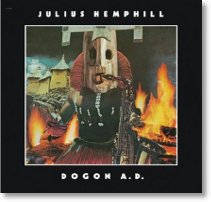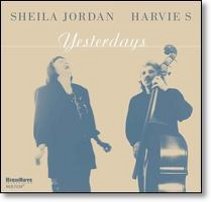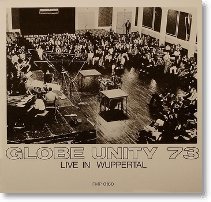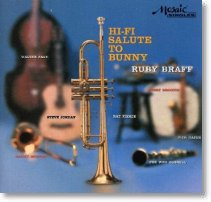A Consumer Guide to the Trailing Edge: April, 2012
Recycled Goods (#96)
by Tom Hull
Once again, a few days short of the end of the month I looked at the working file and it was nearly bare (four records, I think). Don't have much on the shelf either -- big thing is Woody Shaw's The Complete Columbia Albums Collection; little things: Sufis at the Cinema: 50 Years of Bollywood Qawwali and Sufi Song 1958-2007 and a 1980-98 Aretha Franklin comp -- so I'm ever more dependent on streaming (and for some reason, Rhapsody is real weak when it comes to picking up recent compilations, but part of that may be that their browsing tools are so poor I just can't find things).
After hustling a bit I wound up with 18 records, down one from March, up one from January. Seems to be the new norm, a far cry from the 50-60 per month when I was posting on Static.
 |
 |
 |
 |
 |
Government Cheese: Government Cheese: 1985-1995 (1985-95 [2010], Cedar Creek, 2CD): Postpunk group from Bowling Green, KY, named for a processed cheese the USDA generated from milk price support surplus and palmed off on welfare recipients. They released an EP in 1985, another in 1987, a live LP in 1989, the inevitable eponymous album in 1992, and a single in 1995: presumably most or all of that is here, along with some miscellany -- set starts off with an unreleased cover of "People Who Died," then drops into an original that quotes Stephen Foster. I figure they were scrounging for bait, but their basic three-chord thrash holds up admirably over the long haul. Bound for obscurity, they were revived by leader Tommy Womack's book (Cheese Chronicles: The True Story of a Rock 'n' Roll Band You've Never Heard Of), a reunion based on Womack's solo career, and this compilation. I checked this out because of Womack's recent solo albums. His songcraft starts to peek through on Disc 2 with "For the Battered." B+(***) [R]
Julius Hemphill: Dogon A.D. (1972 [1977], Arista Freedom): I've missed my chance to pick this up twice now: once in 1977 when Arista picked up the Freedom catalog and I managed to snag most of their reissues, and again last year when International Phonograph decided to make their reissue one of those limited editions that is already an out-of-print collector item -- judging from year-end polls I seem to be about the only jazz critic in the US not served with a copy, and I'm only hearing this now thanks to a reader. This was Hemphill's first album, with Baikida Carroll on trumpet, Abdul Wadud on cello, and Philip Wilson on drums. The alto sax leads a weird dance which breaks free even when the rhythm holds tight -- Wilson is especially impressive. Then they do it again with the leader on flute, even bluesier. The 2011 reissue adds a 20:07 bonus cut, "The Hard Blues," cut at the same session with baritone saxman Hamiet Bluiett added, also available on Hemphill's second album, Coon Bid'ness. A- [cdr]
Bill Hicks: Philosophy: The Best of Bill Hicks (1990-93 [2001], Rykodisc): Comedian, died in 1994 at age 32 -- pancreatic cancer, a cruel irony for a guy who spent much of his time in public extolling cigarettes and drugs. Like Lenny Bruce, he blasphemes religion and flirts with philosophy, but he tends to fall back on loud and dumb, and would rather go on about porn: the two quotes I jotted down are "all governments are cocksuckers" and "by the way, there are more dick jokes coming." Should have grabbed the one about if there are any gays dumb enough to want to join the military, power to them. B+(**) [R]
Sheila Jordan/Harvie S: Yesterdays (1990 [2012], High Note): Born 1928, but aside from the one-shot Portrait of Sheila in 1962 she didn't really get her career going until the late 1970s, and still hasn't been given her due -- although she's spent so much time travelling and teaching since 1990 I'm not finding dozens of aspiring jazz singers acknowledging their debts to her. Early on she paid plenty of dues, chasing Bird, and catching his pianist Duke Pearson. George Russell finally put her in front of a microphone: I'd put that on the list of his major accomplishments-- along with synthesizing Cuban be-bop for Dizzy Gillespie, teaching Miles Davis and John Coltrane how to use modes, introducing electronics to jazz, and inspiring a whole generation of Scandinavian jazz stars. I first ran into her on Roswell Rudd's mid-1970s albums -- the totally forgotten Numatik Swing Band and the even-more-marvelous Flexible Flyer -- and followed her through Steve Kuhn's group, into her solo albums -- many with nothing more than bass fiddle for accompaniment. This set, recorded "live in concert, circa 1990," is one of those, with the former Harvie Swartz on bass. More standards, less be-bop/vocalese, than her studio albums, which means more touchstones you think you know but will hear something new in here. Her control is so remarkable that even though she breaks up laughing in the Fats Waller medley she never misses a note. Only in the closer, "I Could Have Danced All Night," does she finally lose it, a joke you can't help but enjoy. A-
In Series
Back in December I got a letter from the good folks at Destination Out with a proposal that "We could easily furnish gratis downloads for you to listen to" if I would agree to review their FMP reissues over at their Bandcamp store. I dawdled a bit, then wrote back and explained that I had already reviewed most of what they had available (see April 2011 and November 2011). The key to reviewing them, of course, was that they had the entire records available for streaming (as well as purchase) -- that is common (but not universal) practice at Bandcamp, and has made it possible to supplement my Rhapsody Streamnotes with some of their fare.
I never heard back from them, and when I decided time had come to scoop up another helping of their reissues, I discovered a not-so-funny thing had happened at their store: a lot of previously available tracks disappeared. Moreover, most new records were presented only with samples -- generally about half of the album, sometimes less. That may be enough for prospective buyers, but it's not enough basis for me to review on. So I did a careful sort of what they have available, and wrote up notes (below) on the releases I hadn't previously reviewed that are still available complete. This will probably be the end of the road for me -- unless they respond by giving me access to complete downloads (which is less convenient than streaming for me, but presumably higher quality and burnable), or they change their business strategy and go back to free public streaming.
Meanwhile, the incomplete records on the site that I haven't been able to review are:
- Brötzmann/Bennink: Ein Halber Hunt Kann Night Pinkeln (1977, FMP) [6/10]
- Brötzmann/Oliver/Kellers/Schoof: In a State of Undress (1989, FMP) [2/5]
- Peter Brötzmann/Alfred 23 Harth: Go-No-Go (1987, FMP) [6/13]
- Globe Unity Orchestra and Guests: Pearls (1975, FMP) [2/3]
- Kellers/Brötzmann: Edelgard . . . Maar Helaas! (1980 [1981], FMP) [1/2]
- Steve Lacy Quintet: Follies (1977 [1978], FMP) [2/4]
- Butch Morris: Conducts Berlin Skyscraper (1995 [1998], FMP, 2CD) [6/8]
- Ernst-Ludwig Petrowsky: SelbDritt (1980 [1981], FMP) [2/5]
- Hans Reichel: Bonobo (1975 [1976], FMP) [6/11]
- Hans Reichel: The Death of the Rare Bird Ymir/Bonobo Beach (1979-81 [1993], FMP) [7/12]
- Hans Reichel: Shanghaied on Tor Road (1992, FMP) [10/18]
- Sam Rivers & Alexander von Schlippenbach: Tangens (1997 [1998], FMP) [2/5]
- Hans-Günther Wauer/Günter "Baby" Sommer: Dedication (1981 [1982], FMP) [2/4]
My biggest regret there is the late Hans Reichel. Destination-Out recently ran a piece calling him The Greatest Guitarist You've Never Heard Of. As someone who's poked through every page of nine editions of The Penguin Guide, I had indeed heard of him, but hadn't actually heard him until I reviewed Erdmännchen back in November (graded it A- in November, and it's still available whole, well worth checking out -- while you still can).
Somewhere between a third and half of the records I reviewed have been pruned back. I am, however, almost certain that this occurred after I reviewed them -- I really doubt that I wouldn't have noticed the cuts before.
Willem Breuker & Leo Cuypers: . . . Superstars (1978, FMP): Of the Dutch avant-garde, anyway, usually heard in larger conflagrations, but just the two of them here, Breuker on various saxes and clarinets, Cuypers piano; not intimate, nor even much of a duo, the two mostly switching off like tag team wrestlers, Breuker often reaching not for the right note but the funny one, and playing two saxes simultaneously on his "Kirk" tribute. B+(***) [bc]
Günter Christmann/Detlef Schönenberg Duo: We Play (1973, FMP): Trombone player, born in Poland during the war, like Roswell Rudd in many ways, including his ability to tap into Kid Ory while playing stuff from another world: free grunge, kicked left and right by his percussionist cohort. B+(***) [bc]
Globe Unity Orchestra: Globe Unity 73: Live in Wuppertal (1973, FMP): Alexander von Schlippenbach's pathbreaking free jazz orchestra, ten horns -- counting Peter Kowald's tuba -- plus piano, bass and drums; I might be happier had they explored "Wolverine Blues" further -- their trad jazz deconstruction anticipated Air -- or if they dabbled more in recognizable forms, like their idea of a "Bavarian Calypso" or the march "Solidaritätslied," but there's no energy crunch here: their full bore cacophony -- Schlippenbach and Kowald are credited with "conduction," more like artillery guidance, as the "Maniacs" finale brings down the house. A- [bc]
Georg Gräwe Quintet: New Movements (1976, FMP): Pianist-led group, with trumpet, sax, bass, and drums -- no names that I instantly recognize -- in what may be his first record, more than a decade earlier than anything AMG or Discogs list; the 20-year-old pianist would have been the most unknown of the lot at the time, but he shows remarkable poise in the midst of a very lively free-for-all. B+(**) [bc]
Peter Kowald: The Complete Duos: Europa America Japan (1986-90 [2003], FMP, 2CD): The German avant-garde's premier bassist cut many duets, including three albums (Europa, America, and Japan, for where they were recorded) shuffled into two CDs here -- an initial sampler released in 1991, and a second volume in 2003; 37 cuts, ranging from 2:19 to 7:00, with 26 partners, the Berlin and New York sessions with familiar names and instruments, the Tokyo sets much less so, a peculiar form of exotica; one could whittle this down -- a first approximation would be to keep the saxes, drums, and the remarkable pianist Irène Schweizer, while dropping the vocalists and thinning out the Tokyo sessions -- but largesse is the essence here, the more contexts the bassist navigates, the more impressive. B+(***) [bc]
Ernst-Ludwig Petrowsky: SelbViert (1979 [1980], FMP): Saxophonist, b. 1933 in Germany and wound up in the East after the war where he seems to have been an important figure, although the records I've noted him on have been free jazz efforts in the West, including his work with Globe Unity and Zentralquartett; this is a freewheeling quartet with Heinz Becker's trumpet bouncing off his soprano, alto, and clarinet, with Klaus Koch on bass and Günter Sommer on drums; rough at first, but one dare devil move after another works, improbably for sure. B+(***) [bc]
Michael Smith Quartet: Live in Berlin: Austin Stream (1976 [1977], FMP): A pianist from Kentucky, moved to France in 1972 and cut this and one more album before returning to the US in 1980; with Claude Bernard (alto sax), Kent Carter (bass), and Laurence Cook (drums); the saxophonist makes a strong impression, as do the piano leads. B+(**) [bc]
Günter Sommer: Hörmusik (1979 [1980], FMP): German drummer, a significant figure in the avant-garde, tries his hand at a solo album -- not all drums, but everything that doesn't go bang at least flutters and twitters; one piece, 34:49, originally split over two LP sides, now pasted back together. B+(*) [bc]
Keith Tippett & Louis Moholo: No Gossip (1980 [1982], FMP): Piano-drums duets, an intense fury of percussion from both artists, with titles suggesting the South African's politics, not that anyone here dissents. B+(***) [bc]
Briefly Noted
Ruby Braff: Hi-Fi Salute to Bunny (1957, RCA): A tribute to 1930s trumpeter Bunny Berigan with clarinetist Pee Wee Russell, pianist Nat Pierce, and others, bright, richly toned, a latter-day swing classic; reissued on CD in 2007 by Mosaic Select, and now dumped out digital-only. A- [R]
Alex Chilton: Free Again: The 1970 Sessions (1969 [2012], Omnivore): The missing links between the teen-pop Box Tops Chilton fronted (1967-70) and the pathbreaking new wave band Big Star (1971-75) he led, although it takes a lot of redundancy to stretch them out to CD-length. B+(**) [R]
Karen Dalton: 1966 (1966 [2012], Delmore Recording Society): A folksinger from Oklahoma, had an underground reputation in Greenwich Village in the 1960s, yielding only two 1969-71 albums that are treasured and not bad; these newly unearthed home recordings are a minor event, mostly trad., Tim Hardin (4), and Fred Neil (2), plus a "God Bless the Child" to test her Billie Holiday rep, pinned down by the weak sound and dynamics. B [R]
Goldfrapp: The Singles (2000-12 [2012], Mute): A decade's worth of less-than-hit electropop, plus two spare tunes the now-former label figured they might as well use as bait -- uh, singles; I liked their 2010 album and still like its singles here, but instead of bringing the older material into focus all too often they fade into fuzzy utopian dreamscapes. B+(*) [R]
Tronics: Love Backed by Force (1981 [2012], What's Your Rupture?): Non-group front for a Brit named Ziro Baby, who sounds a bit like a cross between Syd Barrett and Brute Force aping the Ramones ("My Baby's in a Coma") or the Modern Lovers ("Love Tan"); tacking on the contemporaneous single "Shark Fucks" would have added to the historical import, but they settled for a straight 36:20 LP reissue. B [R]
Legend: B+ records are divided into three levels, where more * is better. [R] indicates record was reviewed using a stream from Rhapsody ([X] is some other identified stream source; otherwise assume a CD). The biggest caveat there is that the packaging and documentation hasn't been inspected or considered, and documentation is especially important for reissues. But also my exposure to streamed records is briefer and more limited, so I'm more prone to snap judgments -- although that's always a risk.
For this column and the previous 95, see the archive. Total records reviewed: 3199 (2801 + 398).
Copyright © 2012 Tom Hull.